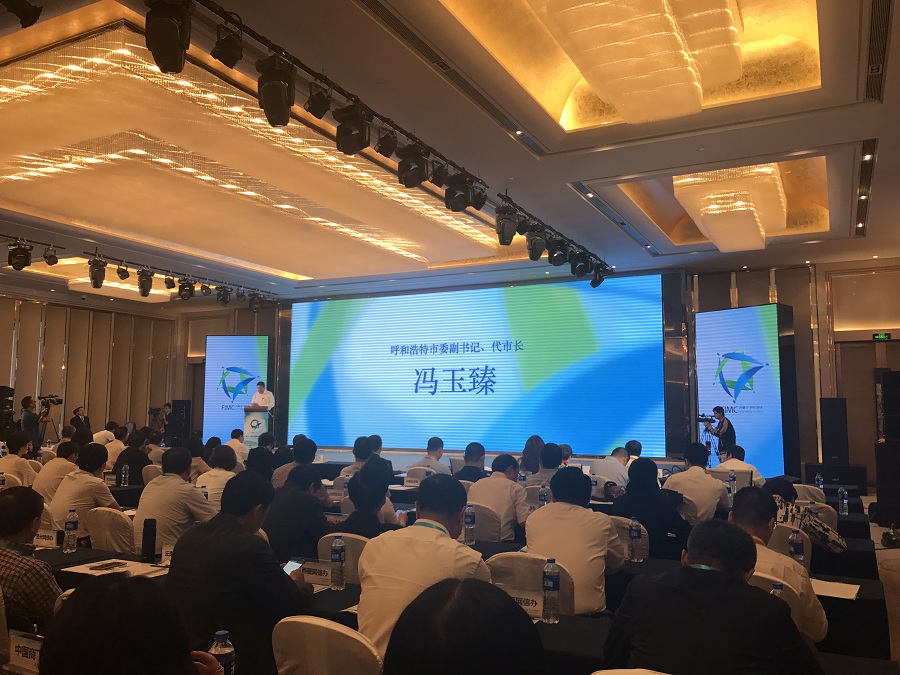Forum on internet media convenes in Hohhot

In recent weeks, Chinese news agencies have struggled to gain more interest from netizens online, brainstorming new concepts and technologies of delivering the news.
On Aug 25, the 17th Forum on Internet Media of China was convened in Hohhot, capital of the Inner Mongolia autonomous region, focusing on the future development of online media in the digital era.
Sub-forums centered on media innovation using artificial intelligence (AI), the increase of China’s international influence and marketing through information technologies.
Hohhot is a hub for finance, culture and science in northern China. In recent days, the city has pioneered a demonstration base for e-commerce, broadband construction, the dairy industry, big data, and afforestation, according to acting mayor Feng Yuzhen.
Over the past decade, Hohhot has functioned as a transfer station for commercial trade along the Grassland Silk Road, and has sought opportunities to flourish through the China-Russia-Mongolia Corridor, added Feng.
Feng pointed out that to meet the digital revolution, Hohhot has utilized its local natural resources and talent to boost big data-related industries. The city has brought in several Chinese giants, such as Alibaba, Baidu and Tencent, to construct cloud computing bases with the ambition of creating China’s largest information processing center.
Depend upon the data bank, Hohhot has confidence in accelerating its internet application in agriculture, manufacturing, commerce, and public communications.
“The internet has dramatically shifted people’s lives and way of thinking over the past few years, pushing forward new media to keep pace with innovative technologies,” said Ren Xianliang, deputy director of the Cyberspace Administration of China.
Ren outline three principles for the progression of the digital media revolution. First, uphold news content and quality as essential to drive a mass readership. Second, utilize emerging technologies to update news delivery methods. Third, media should serve people, focusing on social issues and opinions, to function as a communication medium between the government and the public.
Led by Cyberspace Administration of China, the forum was co-hosted by China Economic Net, the Internet Information Office of Inner Mongolia, the Hohhot Municipal Party Committee and the People’s Government.
Hundreds of officials, professionals and journalists took part in discussions on internet media development, including the State Press and Publication Administration, the All-China Journalists Association, the CPC Publicity Department, Economic Daily, People’s Daily Online, Xinhua Net, the Communication University of China, and Tsinghua University.

Feng Yuzhen, acting mayor of Hohhot, delivers a speech at the 17th Forum on Internet Media of China held in Inner Mongolia autonomous region on Aug 25, 2017. [Photo by Yuan Hui/China Daily]
MOST POPULAR
- 1 China to give visa-free treatment to another 9 countries
- 2 China fully opens manufacturing sector to foreign investors in landmark opening up move
- 3 China's import expo attracts record-breaking participating countries, exhibitors
- 4 China's door opening even wider to foreign visitors, businesses
- 5 China revises rules to ease foreign strategic investment in listed firms
Editors' Picks
 Infographic:
China's public holidays for 2025
Infographic:
China's public holidays for 2025
 Infographic:
Basic facts of APEC
Infographic:
Basic facts of APEC
 Infographic:
Wrapping up the 7th CIIE: Data recap
Infographic:
Wrapping up the 7th CIIE: Data recap




